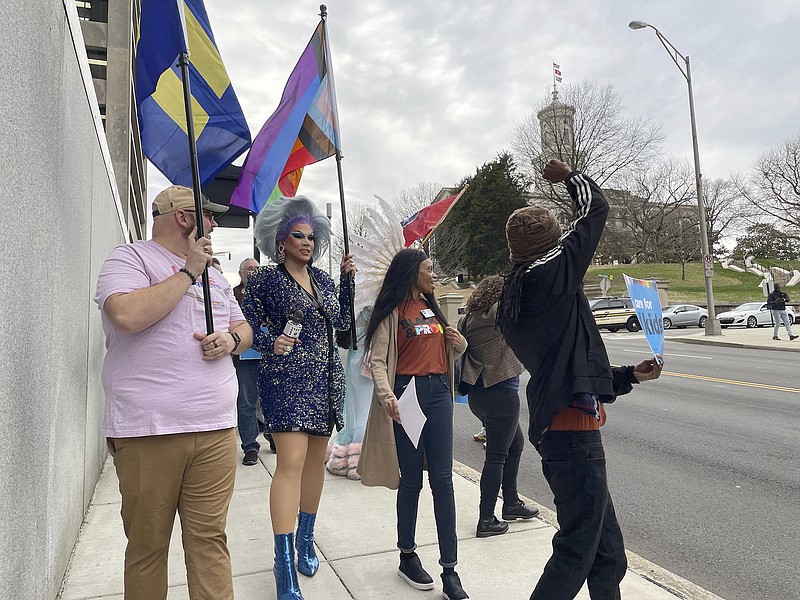Tennessee has passed a law aimed at restricting drag performances, an art form that often involves exaggerated gender performance and cross-dressing. Similar bills have been introduced in 14 other states as part of the revived culture war against LGBTQ people. The Tennessee law was written to survive judicial scrutiny by presenting itself as designed to protect minors. But the law is nevertheless unconstitutional, violating the First Amendment in several ways.
The most important First Amendment violation is also the most obvious: The Tennessee law discriminates based on viewpoint. Viewpoint determination violates the core of free speech as understood by the Supreme Court.
The Tennessee law extends an existing ban on "adult cabaret performances" in places where minors might see them to include "male or female impersonators." The other adult cabaret performances mentioned in the law are "topless dancers, go-go dancers, exotic dancers, [and] strippers."
It's almost certainly constitutional for a state to say that sexualized performances can only be performed in places where there are no minors. To be clear, the First Amendment would not allow a state to ban those performances outright. Dancing, including nude or sexy dancing, is expressive conduct that the courts consider to be a form of speech. It's therefore protected by the Constitution. Restricting those performances to adults-only spaces is a time and place regulation that the courts consider reasonable.
That's why the Tennessee law, instead of banning drag performances outright, purports to restrict them like adult entertainment. The law's drafters want the courts to say that there is no difference between protecting minors from seeing strippers and protecting them from seeing drag.
On closer examination, though, the law doesn't pass constitutional muster. The main reason is that the law targets a particular kind of performance based on the message it sends: It prohibits a performance where a person dresses as a different gender than the person's assigned-at-birth sex, but it would not prohibit the exact same performance if the performer had a different assigned sex.
To see what I mean, imagine two identical dance performances, one by a man and the other by a woman. If both performers wear an identical dress, and their performances are visually indistinguishable, only the man's performance would be banned by the statute. Yet the only difference is the symbolic meaning of the performance with respect to gender.
Targeting symbolic meaning in this way is a classic example of what the Supreme Court calls viewpoint discrimination. Under the First Amendment, the government is not allowed to ban speech based on its point of view, because that amounts to prohibiting speech based on what it is trying to say.
In a last-ditch attempt to avoid the viewpoint discrimination problem, the Tennessee law says that it only applies to performances that appeal to the "prurient interest." That's technical language that refers to speech that is "obscene." Obscene speech is a category that historically was considered outside the First Amendment. The law's authors may even have been trying to protect cross-dressing they like, from "Mrs. Doubtfire" to "Madea."
But the law would still violate the First Amendment as viewpoint discrimination even if it only covered obscene speech. In an important 1992 case, R.A.V. v. St. Paul, the Supreme Court, in an opinion by Justice Antonin Scalia, held that the First Amendment means the government cannot discriminate by viewpoint even within a category like obscenity. Put another way, viewpoint discrimination is always unconstitutional, even in a realm where the First Amendment allows regulation, like obscenity or libel.
To be sure, there are plenty of other constitutional and logical problems with the law, but the best analysis would focus on what really makes it unconstitutional: The law is an effort by Tennessee to prohibit expressive speech based on the state's dislike of its message. The whole point of the First Amendment is to protect us from that.
Bloomberg
